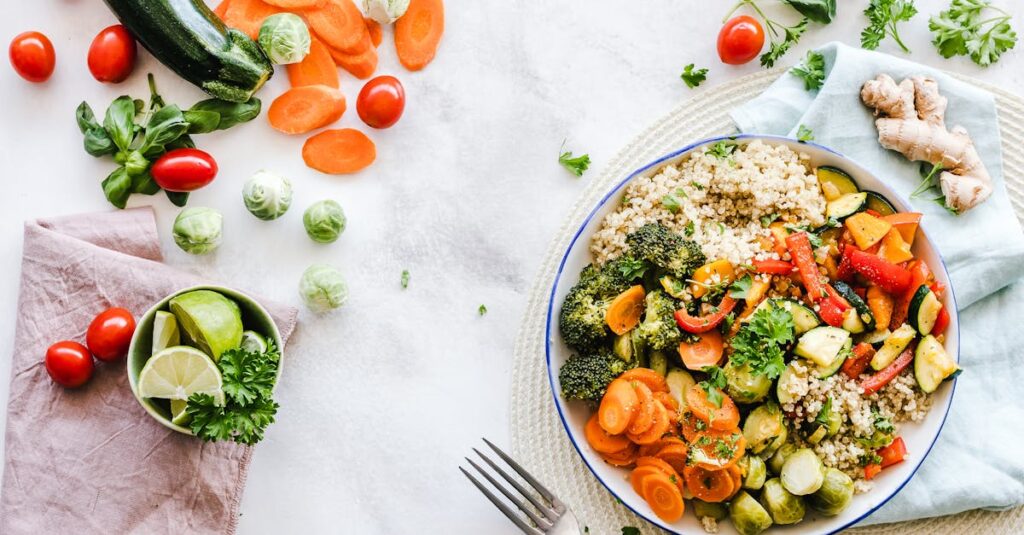?
The Role of Nutrition in Climbing
Climbing is a unique sport that combines bursts of strength with sustained endurance. Proper fueling ensures increased energy levels to sustain long sessions, enhanced muscle recovery to reduce soreness and prevent injuries, improved focus and mental clarity to tackle complex routes efficiently, and better hydration to maintain grip strength and prevent fatigue.
.
Key Macronutrients for Climbers
Understanding the role of macronutrients can help you optimize your diet. Carbohydrates provide the quick energy needed for explosive moves and sustained climbs. The best sources include whole grains, fruits, vegetables, and legumes. Consuming complex carbs before a session provides steady energy. Protein is essential for muscle recovery, helping to repair and build muscles after intense climbs. Good sources include lean meats, fish, eggs, tofu, nuts, and legumes. Having a protein-rich meal or snack within an hour post-climb is beneficial. Healthy fats provide sustained energy and support joint health. Avocados, nuts, seeds, olive oil, and fatty fish are great options. Including healthy fats in your daily meals can help with long-lasting energy and inflammation reduction.
.
Hydration: The Key to Grip Strength and Endurance
Dehydration can quickly lead to fatigue and reduced performance. To stay hydrated, drink at least 500ml of water 30 minutes before climbing. During your session, sip water regularly to maintain hydration levels. After climbing, replenish lost fluids with water or electrolyte drinks to aid recovery and prevent muscle cramps.
.
Best Snacks for Climbers
Packing the right snacks can help sustain energy during long climbs. Before climbing, options like oatmeal with fruit or whole-grain toast with peanut butter provide a steady energy release. During climbing, quick snacks like energy bars, dried fruit, nuts, or a banana help maintain stamina. After climbing, consuming Greek yogurt with honey, protein shakes, or lean chicken with quinoa supports muscle recovery and replenishes nutrients.
.
Supplements: Are They Necessary?
While a balanced diet should provide all essential nutrients, some climbers may benefit from supplements. Electrolytes help prevent cramping, protein powders offer a convenient recovery boost, omega-3s support joint health, and magnesium aids muscle function and recovery.
.
Sample Meal Plan for Climbers
A well-balanced meal plan ensures sustained energy and proper recovery. A pre-climb meal could consist of scrambled eggs with whole-grain toast and avocado, along with a fruit smoothie containing oats and nuts. During climbing, a handful of trail mix with almonds, cashews, and dried fruit serves as an excellent energy booster. For post-climb recovery, grilled salmon with quinoa and roasted vegetables or Greek yogurt with honey and berries provide essential nutrients and aid in muscle repair.
.
Final Thoughts: Eat Well, Climb Strong
A climbers diet plays a crucial role in climbing performance and recovery. By focusing on a balanced diet rich in essential nutrients, you can maximize your endurance, strength, and mental focus. Plan your meals wisely, stay hydrated, and enjoy the journey to becoming a stronger climber. For more climbing tips and gear recommendations, stay tuned for our latest updates!
.


Hadn’t ever considered this! Glad I found this